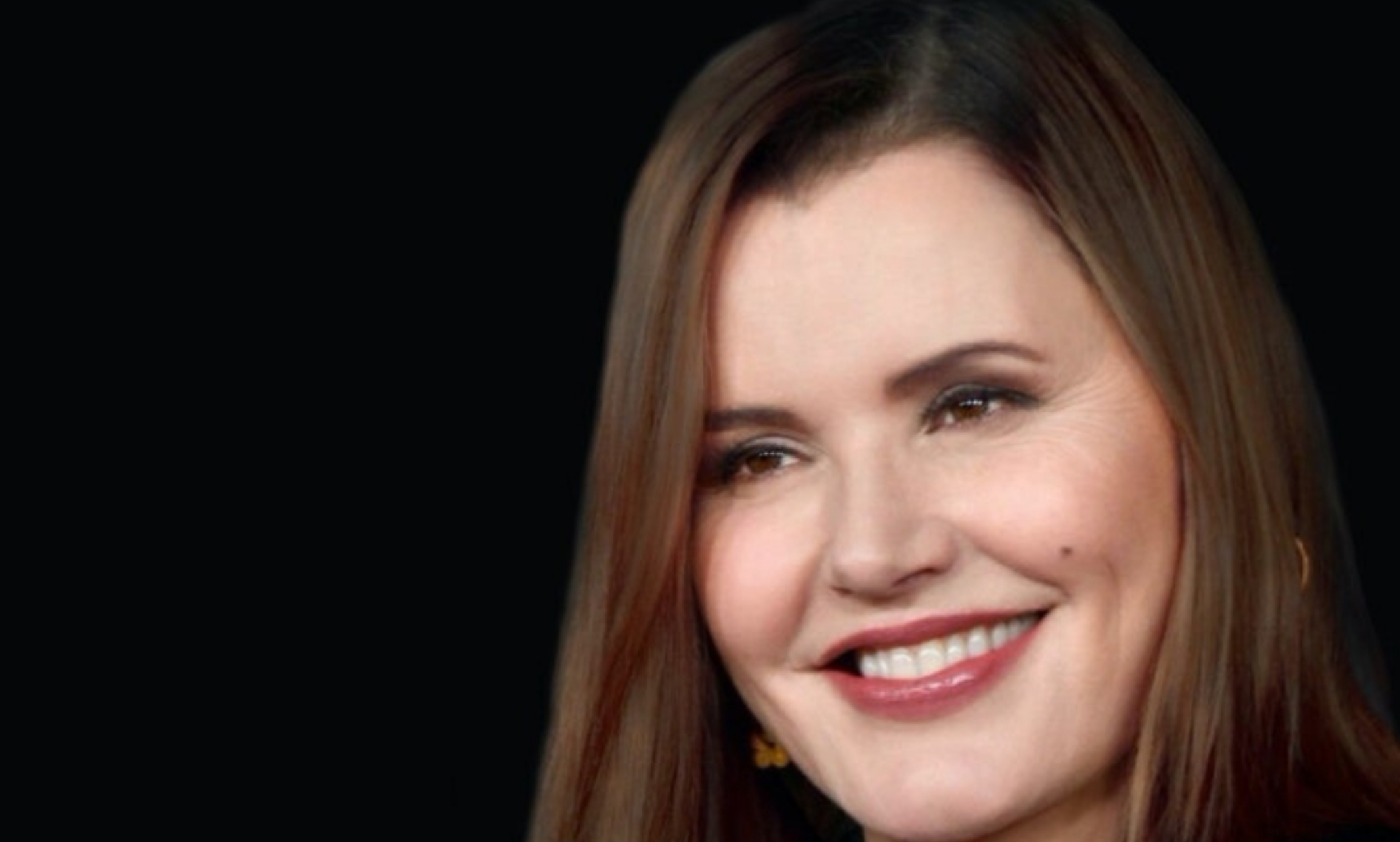
The Starr Women’s Hall of Fame induction to honor extraordinary women who have made their mark on Kansas City
Geena Davis, whose acting and activism have elevated gender parity, will be the featured speaker at the March 21, 2023, induction ceremony for the Starr Women’s Hall of Fame.
Geena Davis Interview on KCUR “Up to Date”
Transcript (DOC)
Download audio
Davis’s award-winning work in television and film and as the founder and chair of the Geena Davis Institute on Gender in the Media has established her as an industry leader in drawing attention to gender equality on screen.
“We are proud and honored that Ms. Davis is headlining this event,” Alicia Starr, co-chair of the hall of fame planning committee said. “She’s a shining example of the achievements that we honor through the Starr Women’s Hall of Fame – community enhancement, leadership and the development of opportunities and recognition for women’s accomplishments, as well as developing resources that further women’s opportunities. Her focus on research and empowering women and girls is directly in line with our objectives in honoring Kansas City’s influential women.”
Davis secured her first film acting role in “Tootsie” in 1982. She has been a working actor since, starring in popular movies like “A League of Their Own” and “Thelma and Louise.” She received an Oscar for her starring role in the “The Accidental Tourist” in 1988 and a Golden Globe for her turn as America’s first female president in the 2005 television series “Commander in Chief.”
In 2019, the Academy of Motion Picture Arts and Sciences honored Davis with a second Oscar, the Jean Hersholt Humanitarian Award, in recognition for her work to achieve gender parity in film and television. Beyond industry accolades, Davis’s work exemplifies the vulnerability and triumph of women’s successes professionally and personally.
The Emmy Awards presented Davis with the Governor’s Award in 2022 for her groundbreaking work with the Geena Davis Institute on Gender in the Media, which she founded in 2004 to create gender balance, foster inclusivity and reduce negative stereotyping within the family entertainment media. The organization uses data-driven research, education and advocacy to empower and inspire content creators to provide inclusive content. In addition, they have developed research tools for content evaluation: Geena Davis Inclusion Quotient (GD-IQ) and Spellcheck for Bias.
This year’s induction event is at the Kauffman Center for the Performing Arts, Tuesday, March 21, 2023, at 4 p.m. Tickets are available through the Kauffman Center for the Performing Arts.
The Starr Women’s Hall of Fame is dedicated to recognizing extraordinary women and preserving the history of their accomplishments. These women are social reformers, volunteers, philanthropists, civic leaders, activists and educators. They are neighborhood leaders and grassroots organizers, from yesterday and today, both famous and unsung. They are movers and shakers whose tireless commitment to community has made Kansas City a better place to live. The Hall of Fame is a repository for their legacies. By sharing their stories, the Hall of Fame encourages and inspires women everywhere. Biographies of the past inductees are available at Starr Women's Hall of Fame.
The Hall of Fame is named in honor of Martha Jane Phillips Starr, a legendary activist and philanthropist who blazed a trail for family issues and women’s rights. The Hall of Fame is made possible through the Starr Education Committee, Martha Jane Starr’s family and the Starr Field of Interest Fund, which was established upon her death through the Greater Kansas City Community Foundation. The idea for the Starr Women’s Hall of Fame stemmed from Starr Education Committee members.
A permanent display honoring Hall of Fame members is open to the public on the third floor of the Miller Nichols Library at the University of Missouri-Kansas City. The library is at 800 E. 51 St., Kansas City, Missouri.
The civic organizations that advocate on behalf of women and family issues and have signed on in support of the Starr Women’s Hall of Fame include: American Association of University Women, American Business Women’s Association, Association for Women Lawyers of Greater Kansas City, Central Exchange, CBIZ Women’s Advantage, Girl Scouts of NE Kansas and NW Missouri, Greater Kansas City Chamber’s Executive Women’s Leadership Council, Greater Kansas City Women’s Political Caucus, Jackson County Missouri Chapter of the Links, Inc.; Junior League of Kansas City, Missouri; KC Metro Latinas, Kansas City Athenaeum, Kansas City Young Matrons, OneKC for Women, SkillBuilders Fund, Soroptimist International of Kansas City, Soroptimist Kansas City Foundation, UMKC, UMKC Women’s Center, UMKC Women’s Council, UMKC Women of Color Leadership Conference, United WE, WIN for KC, win|win, Women Leaders in College Sports, Women’s Public Service Network, Zonta International District 7 and Zonta Club of KC II.
Buy Tickets Now
Feb 01, 2023
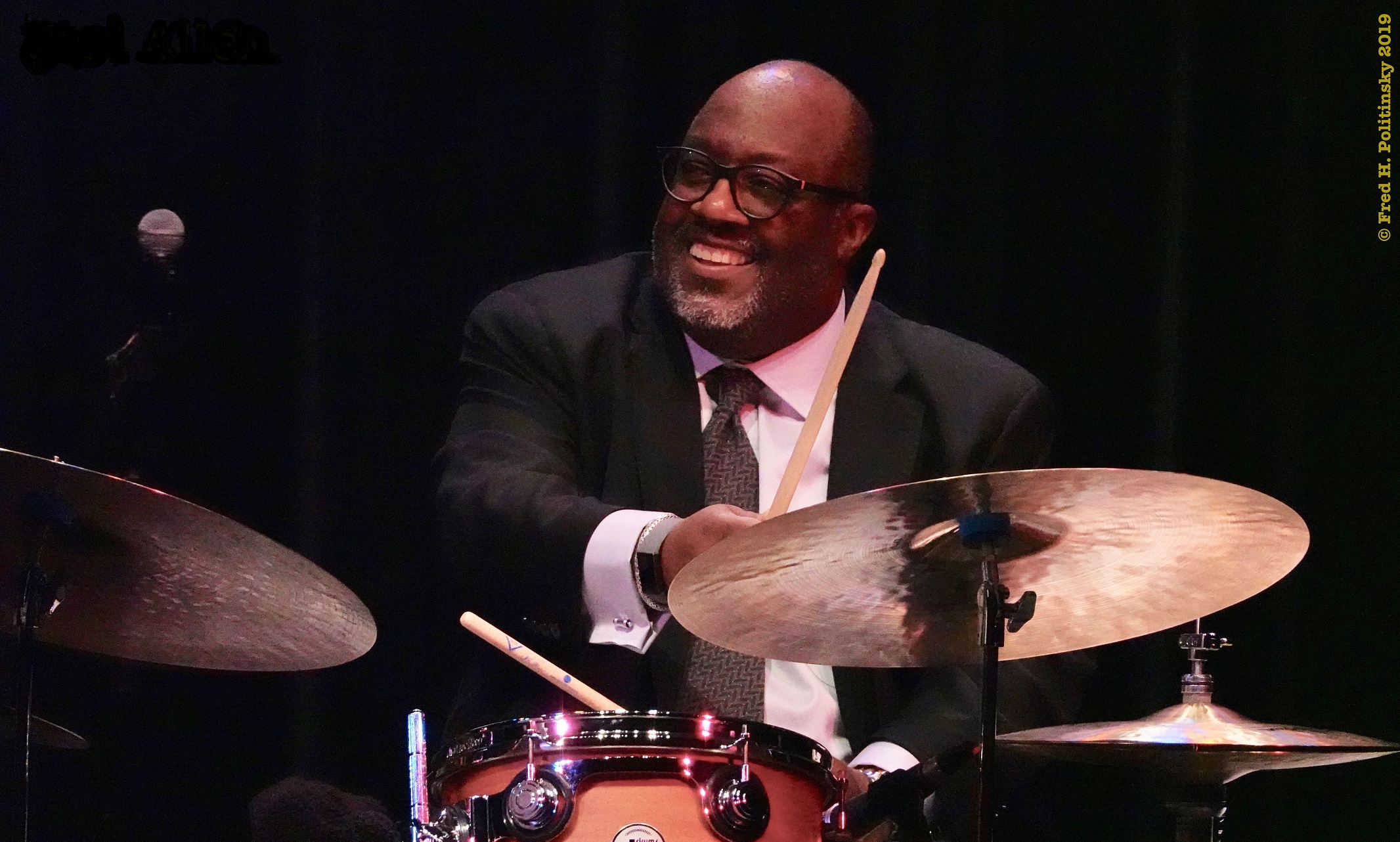
Carl Allen is the drummer on a record nominated for Best Large Jazz Ensemble
Carl Allen, William D. and Mary Grant/Missouri Endowed Professor of Jazz Studies, is the drummer on “Remembering Bob Freedman,” a tribute album to the celebrated music arranger nominated for a 2023 Grammy Award for Best Large Jazz Ensemble.
When asked about the Grammy nomination, Allen said it was a pleasant surprise. His casualness about the nomination could be because he’s been featured on Grammy-nominated ‑ and Grammy-winning ‑ records before. It could also be because Allen’s focus in music isn’t on awards, but the love and community involved in making it.
“Competition and music don’t always go together for me, I don’t like keeping score,” Allen said. “It’s the love and support – all of the awards and accolades should never overshadow the music itself.”
Allen’s belief in community is part of what drew him to teaching. He is in his second year at UMKC; prior to that, he taught at Juilliard for 14 years, including six years serving as artistic director of jazz studies.
“One of the reasons why I’m drawn to teaching is I really enjoy helping young people, “Allen said. “When you see a person who has a gift and burning desire to get better, you want to try and create opportunities for them. I’m trying to create a nurturing environment here where people feel supported.”
The environment is part of what drew him to UMKC. Allen’s predecessor as professor of jazz studies, Bobby Watson, is also personal friend of many years. When Watson retired, Allen knew the opportunity was worth pursuing.
“I knew I wanted to be part of a program that was respected by leadership. When the music is respected, you can get traction to really get things done,” Allen said. “When I came for the interview and met the dean and faculty, I felt that the music was really respected and part of a larger vision.”
“When you see a person who has a gift and burning desire to get better, you want to try and create opportunities for them. I’m trying to create a nurturing environment here where people feel supported.” - Carl Allen
In his time at UMKC, Allen has created more opportunities for students and faculty to be a part of that larger vision. He invites in faculty who may not traditionally be involved in the jazz program so that his students are exposed to more perspectives and teachings. He also brings in guest artists to teach workshops and master classes.
“Professor Allen has played with many of the greats, and he has countless anecdotes and information that he shares with students,” said Pete Fucinaro, UMKC Conservatory graduate student in music. “I don’t think there has been a single musician or record I have mentioned that he has not heard. He is deeply invested in the music and traditions.”
“Part of the jazz tradition is ‘each one, teach one,’” Allen said. “You should always try to help people because other people helped you, it’s how we further the music. Relationships and resources are cyclical, you’ve got to create relationships with people.”
Relationships have contributed to Allen’s success in music, including his most recent Grammy nomination. Allen has played with Ron Carter, legendary bassist featured on “Remembering Bob Freedman,” many times throughout his career. When asked to play with Carter at the Jazzaar Festival in Switzerland in a concert to honor Freedman, he knew he couldn’t pass up the opportunity. He didn’t know it would lead to a Grammy nomination.
“Playing with Ron, that’s history. He’s in the Guinness Book of Records as the world’s most recorded jazz bassist,” Allen said. “When I got the call to play at the festival, there was no talk of an album – it was just the festival and a couple of concerts. They recorded the festival performance and here we are.”
You might think that earning Grammy nominations and wins is a highlight of Allen’s career. But when asked about highlights, Allen told the story of a former student of his who went on to become a professional musician.
“When I think about all of things I’ve done and the people I’ve played with, making an impact on people is just as important to me,” he said. “The way I see it, I’m just a vessel. I’m just an instrument being used to try and help people.”
Jan 31, 2023
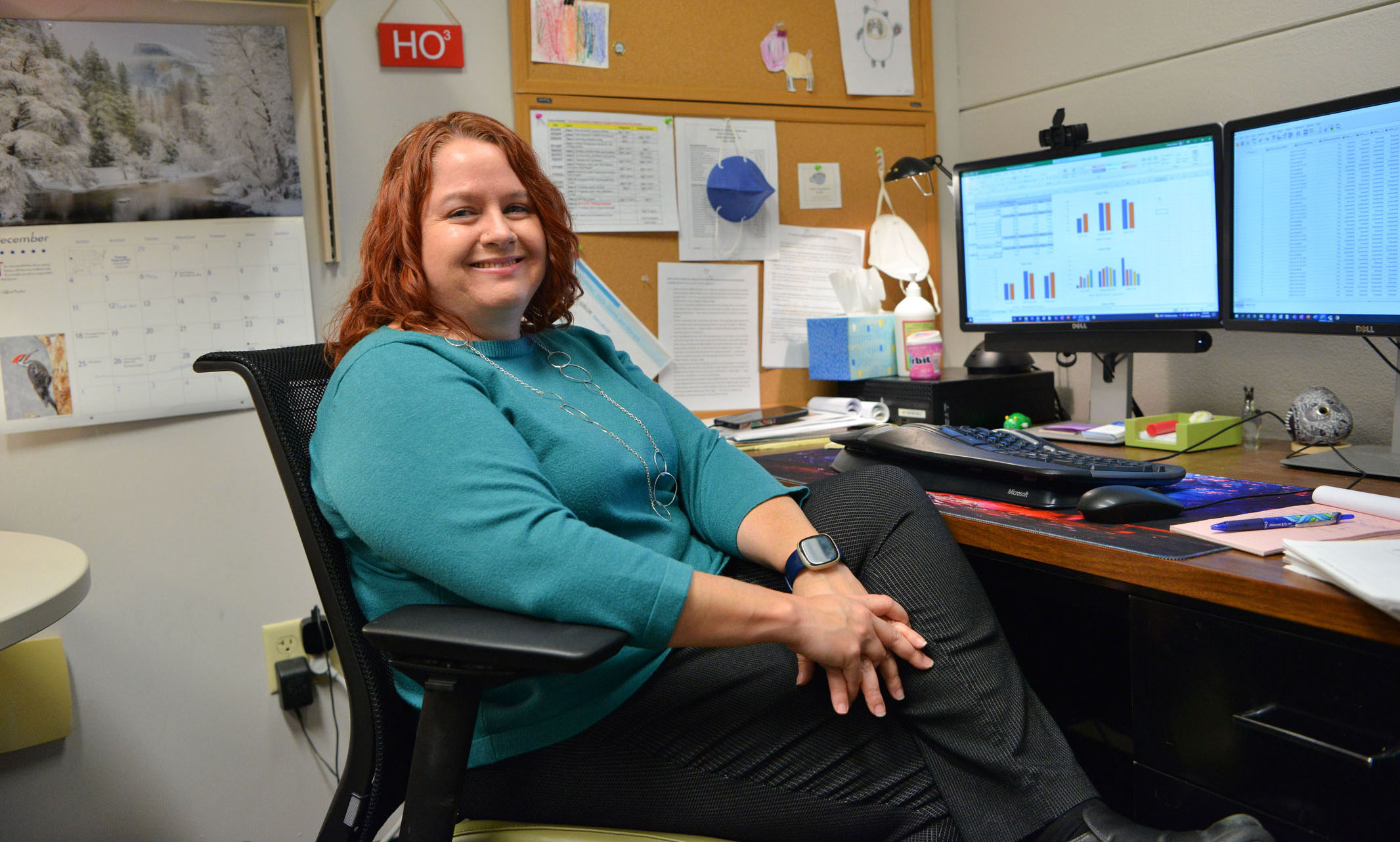
Joanna Scott shares love for numbers and helping people
Early in Joanna Scott’s career, she quickly saw the incredible opportunity dentistry offered her in affecting the health of patients. “I was in pediatric dentistry for a long time,” she said. “You see a 4-year-old child come into a clinic where they already need to have all their teeth extracted because they didn’t have the toothbrush training they needed for proper oral hygiene. It’s heartbreaking and you can really see how big of an impact you can have.”Scott earned her Ph.D. in biostatics from the University of Washington in 2008. She teaches research methodology and biostatistics to UMKC School of Dentistry advanced-education students who have already graduated from dental school and are pursuing specialty certificates in areas such as orthodontics or periodontics. “I grew up loving math, but I really wanted to use math to help people,” Scott said. “Biostatistics was a beautiful marriage of using mathematical skills to directly impact people.”Her students develop the abilities to fulfill the research requirements for their degrees and learn to utilize evidenced-based dentistry with their patients. Evidence-based care enables them to provide their patients with cutting edge care, whether that’s determining the best material or the best technique for any unique case they encounter. Scott’s passion for numbers is attracting recognition by the dentistry profession beyond UMKC. She received the Leaders in Evidenced-Based Dentistry award for Dental, Oral & Craniofacial Research from the American Dental Association (ADA) and The American Association. The national award recognizes significant contributions to the implementation and advancement of evidence-based dentistry.“These are skills the students can use for the rest of their careers,” Scott said. “They’ll be able to evolve with the industry and make connections with the causes of certain diseases while identifying specific risk factors.”
Jan 30, 2023
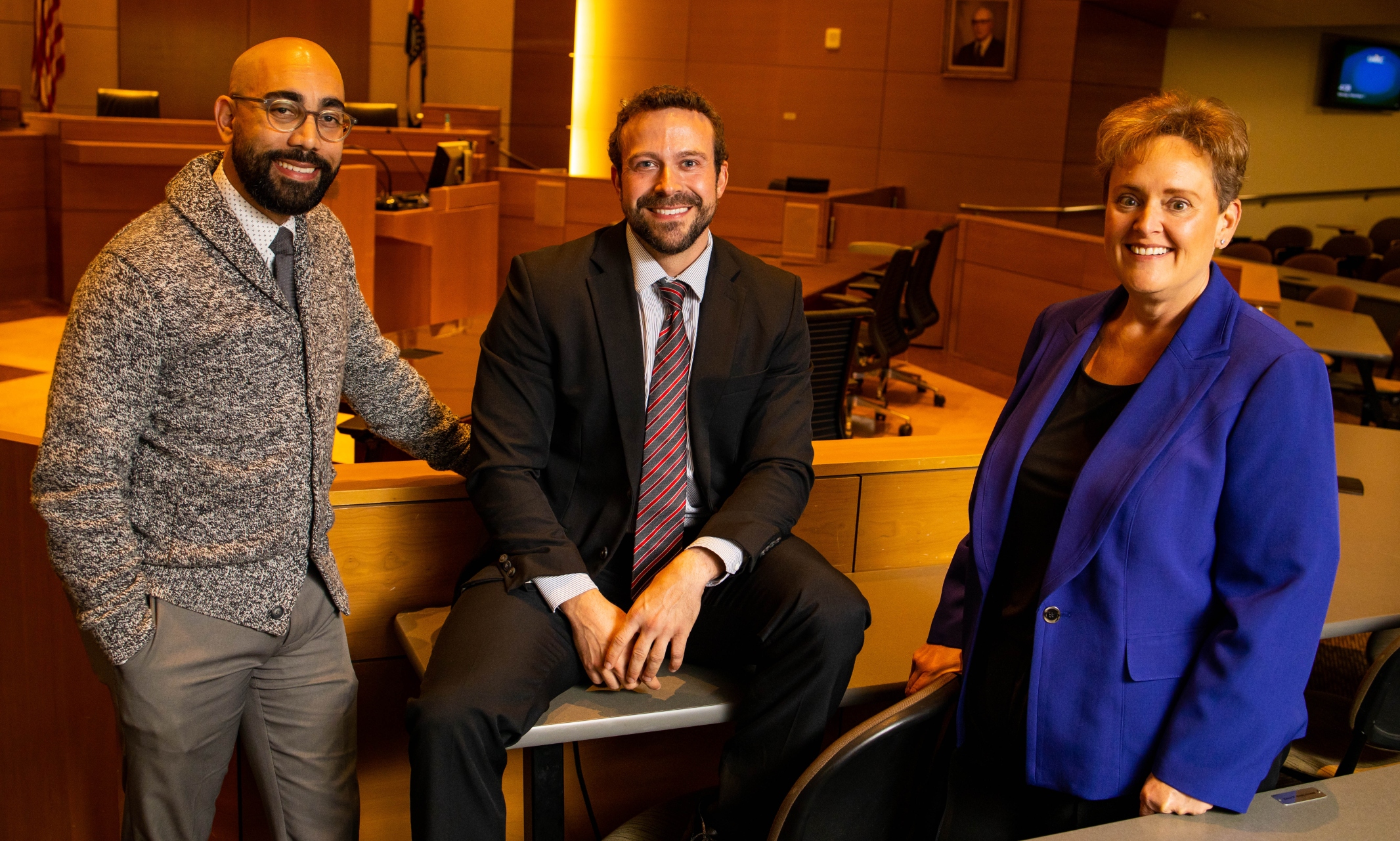
Alumni reflect on how mock trial prepared them for courtroom success
For many students at the University of Missouri-Kansas City School of Law, getting involved on campus helps to lay the groundwork for a successful career. For many alumni, getting involved in mock trial competitions during their time at UMKC has made for an especially easy transition from the classroom to the courtroom.
Anthony McDaniel (B.A. ’11, J.D. ’15) and Jared Frick (J.D. ’15) are two such alumni whose experience in mock trial prepared them for their practice today. Both competed on UMKC’s National Trial Advocacy Team, or mock trial, as it’s commonly known.
The team is a part of the UMKC School of Law Trial Advocacy Program, which is consistently ranked among the nation’s best by U.S. News & World Report, this year ranking #31 – up 23 places from 2021.
The program is designed for students who want to be a trial attorney and want to learn how to effectively represent clients in a courtroom environment without the pressure of a verdict.
McDaniel, now an attorney at Guin Mundorf, LLC in Kansas City, said his time on the team taught him skills he will carry with him for the rest of his life, both in his career and everyday interactions.
“In trial team, they teach you how to think like a lawyer. Then they teach you how to use those skills and present like a lawyer,” McDaniel said. “What makes a good trial attorney is the ability to capture a lot of information and then break it down to present it to someone in a way that is relatable and to take it to the next level — make it persuasive. That’s exactly what mock trial teaches you.”
McDaniel first became involved in mock trial competitions during his undergraduate years. That experience helped spark his interest in applying to law school. He described his time in UMKC's undergraduate mock trial as preparation for law school competitions.
“In trial team, they teach you how to think like a lawyer." - Anthony McDaniel
“It teaches you how to talk like a lawyer and how to present like a lawyer, whereas in law school, you get down to the finer points about courtroom presentation and rules,” McDaniel said. “But I always just loved the idea of standing in front of people and trying to persuade them to see things my way.”
Much the same can be said about his former teammate and friend, Frick, who was recently appointed partner at Young, Kuhl & Frick, LLC in Lee's Summit.
“What drew me to (mock trial) was the theatrics of it all. I was a musical education major for my undergrad, so I was into musical theatre and marching band and enjoyed the entertainment factor of everything,” Frick said.
Frick competed in the Last Team Standing Competition, the initial exposure first-year law students get to a mock trial environment, and he knew it was something he was going to continue.
“It was really helpful because when you enter the unknown of having to talk to opposing counsel or a client or presenting evidence, it can be nerve-racking,” Frick said. “So, participating in mock trial took the mystery out of that and showed me that there really is no magic formula to it – it just takes practice.”
The two went on to compete in several competitions, including the National Trial Competition. The competition, established in 1975, is the oldest and most prestigious trial competition in the country.
UMKC School of Law has attended the national tournament multiple times over the past ten years. The competition attracts more than 140 law schools and involves more than 1,000 law students each year. Students are judged on opening statements, direct examinations, cross examinations and closing arguments.
“You learn how to tell a story,” Frick said. “You learn how to craft a theme and theory in a case and how to hit that throughout your case. You learn how to control your witness and how to not ask questions you don’t know the answers to. You learn the appropriate impeachment techniques. That all translates into real life and real practice once you graduate.”
Their team was coached by Michaelle Tobin, clinical professor of law at UMKC. She has coached mock trial for the past ten years. Tobin said the competition looks like a “mini version of a real trial without the real-life pressure of client representation.”
Each team is given a case file to study and rehearse for six weeks. Tobin said teams practice and refine their arguments over that time, as well as scrimmage with one another. Competitions last about three hours from start to finish.
Tobin said the whole process is directly designed to prepare students for the professional world.
“Knowing how to analyze a case, knowing how to compose an opening and closing statement, how to do a direct and a cross – all of those are skills that you are going to directly use in ligation,” Tobin said. “We take it from opening to close, but what you learn about how to present yourself in the courtroom — how to ask questions, how to analyze a case — can effect everything that you do even if you never try a real case in front of a jury.”
Tobin said one of the most important lessons mock trial competitions teach students is the importance of listening.
“When you get into practice and you have real clients, if you don’t listen to them, you are never going to be a good attorney. Listening is an essential skill, even in mock trial, where you don’t have a client but you have a teammate, a witness and a judge,” Tobin said.
Frick said Tobin is the one who taught him that.
“She taught me how to be a more active listener and not just think about what I’m going to say next. You see that a lot in trials, and everyday life, where someone immediately responds when you make a statement. In the courtroom, if you are focusing on your next question, you are going to miss something,” he said.
"In the courtroom, if you are focusing on your next question, you are going to miss something.” - Jared Frick
For him, McDaniel said mock trial was all about understanding that being in the courtroom is more than just a show.
“A lot of people think it’s all about public speaking or presentation, but I think if you talk to most of us who participated in trial team, they will say that’s a peripheral skill. It’s more about the desire to help people and the ability to understand people,” McDaniel said.
In addition to listening, Frick said one of the most important things mock trial taught him that he frequently utilizes today is “rules of evidence and how to handle evidence.”
“Not only did I learn the full grasp and understanding of it, but it also helped me understand how to get things into evidence and how to make appropriate objections. I think a lot of young lawyers who are right out of school struggle with that, and I see it in the courtroom,” Frick said. “Because I had that experience in mock trial, right after graduation I felt really comfortable in the courtroom.”
McDaniel said his experience “unquestionably” made him into the trial attorney he is today.
“One of the things I love about being a lawyer is that we’re problem solvers before we’re anything else. Trial team really taught me, whether I’m putting together a grill at my house or I’m in a courtroom, it’s about taking a complex issue and breaking it down and building it back up. If you can understand the pieces, you can build anything.”
McDaniel said he uses that method of thinking – breaking down information and rebuilding it – in his time now as an undergraduate mock trial coach and adjunct trial advocacy professor.
“I love being able to share the things I learned and pass that on. I have had so many students who come up to me and say, ‘I loved what we talked about because I used it an interview, and it helped me get a job recently.’ That’s the kind of thing I’ve had the opportunity to pass on, and it feels really great.
Jan 27, 2023
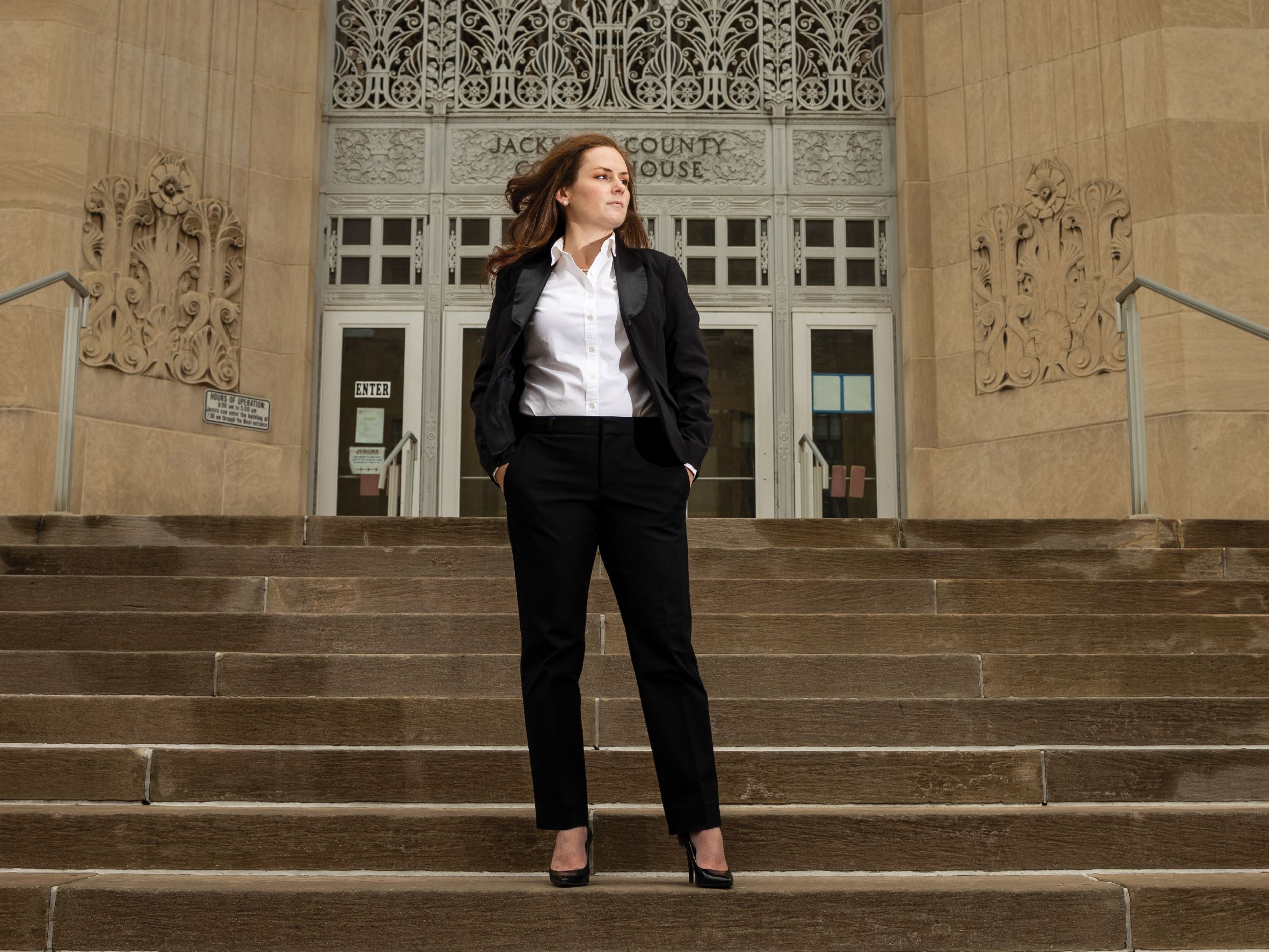
Prosecutor Audrey McCormick continues tradition of strong female advocates
Prosecuting cases involving child abuse and neglect, domestic violence and sex crimes takes a special type of person, according to Audrey McCormick (J.D. ’10).
“I think there are really only two kinds of attorneys when it comes to this subject matter,” McCormick said. “You either want to do it, or you want to stay as far away from it as possible, because it is just something that’s too overwhelming.”
Luckily for McCormick, she’s been able to find balance while pursuing her passion — advocating for children and fighting for victims — while also raising a family and mentoring her staff.
“This work is so important to me,” McCormick said. “If I didn't have it, I think I would just be so bored and unfulfilled that I wouldn't know what to do with myself. I’m happy to continue doing this work for as long as anybody will let me.”
McCormick, a 2020 recipient of the Missouri Bar Foundation’s prestigious Lon O. Hocker Award, began her career as an attorney for the Missouri Children’s Division. Since joining the Jackson County Prosecutor's Office in 2016, she has ascended the ranks to her current role of trial team leader in the special victim’s unit.
McCormick says her professional experience has been shaped largely by the numerous strong female role models she’s encountered as a young lawyer.
“It's a collective, and I think there is a sense of camaraderie between women in the law, particularly,” McCormick said.
McCormick said she’s thankful for those female colleagues who paved the way so young lawyers like herself could focus solely on the quality of their work as opposed to what they might be wearing in the courtroom.
“I can't say that I have ever felt I had to overcome anything other than just a legal argument,” McCormick said. “Maybe that's unique to me. Maybe that is more of a statement on how far things have come in the past decade or so.”
McCormick says she’s heard plenty of stories about women who felt pressure to answer phone calls from the maternity ward or didn’t even disclose that they had children.
“That's the type of stuff that I had heard from some of the older generations of female attorneys — you show no weakness. You work like you don't have a family. And you basically have to try to outwork all the men — and then some — in order to get ahead.”
Now a mother of three and mentor in her own right, McCormick feels compelled to provide that same level of support she received to upcoming young female attorneys in her unit.
“The majority of what I do right now is mentorship — supervising my staff and ensuring that they are supported in the work that they do, because it's obviously very important, but it is also very hard,” McCormick said. “I try to be mindful of that same thing — that work-life balance. There are attorneys working so hard that we'll have to say, ‘I think you are on the fast track to burnout.’ We try to prevent that from happening, too, because we like to keep good attorneys in the unit and in the office. We've got a lot of really passionate, really great attorneys that we work with.”
McCormick continues, “It’s nice to be able to step into those shoes and hopefully do as good of a job as my bosses have done for me in the past.”
One of McCormick’s current supervisors, Jill Icenhower, chief trial assistant of the special victim’s unit for the Jackson County Prosecutor’s Office, said McCormick’s “unmatched ability” in preparing children for trial sets her apart from her peers. Most often, those children are being brought in to talk about horrific experiences of abuse, so they're often terrified to come into a courtroom.
“She has got this innate ability to talk to children and make them comfortable and really relate to them and explain to them how a trial's going to work,” Icenhower said. “She shows them around the courtroom, and she meets them at their level and uses language that they can understand. She walks them through the entire process until they feel comfortable with what's going to be happening and does it in such an empathetic manner.”
Icenhower continues, “I've watched her do closing arguments that are astounding. But it is those quieter moments in watching her prepare a child for trial and seeing a child relax and feel like, ‘I can do this now.’ That, to me, is the hallmark of a fantastic attorney. You can't teach that to someone.”
Icenhower said that McCormick’s ability to relate to kids is so well known that she is routinely asked to go to trial by people outside of the special victim’s unit in cases involving child witnesses.
“It's just something to behold,” Icenhower said. “I know that one of the judges, after watching Audrey do a direct exam of a child, told her afterward that it was one of the best direct exams he has ever seen done in a trial.”
Navigating the heavy emotional toll of this type of work can be challenging, and that’s something McCormick has learned to manage over the years.
“I have a little compartment in my brain, and that's where that stuff goes, for the most part,” McCormick said. “Now, are there days where it is overwhelming? Absolutely. Are there days where you want to give up because the system is overwhelming, and it doesn't seem like you're making enough progress? You're not getting what you want to see happen for these victims. Of course, all of those things happen.”
McCormick stresses the importance of having a strong support system in place to serve as a safety net, especially in the inevitably difficult moments.
“You've put all this time, all this effort, all this emotion into your case and your victims, and you just pour your soul into it,” McCormick said. “If it doesn't go your way, that is crushing for a lot of trial attorneys. Having that support system there — family, friends, colleagues — is crucial to help build you back up and continue to work in this field, if that is what you're passionate about.”
Win or lose, McCormick says she marks the end of each trial in much the same way.
“I go home, I take off my trial attorney hat, I put my mom hat on, I put a smile on, and I have a good weekend with my family.”
Jan 27, 2023
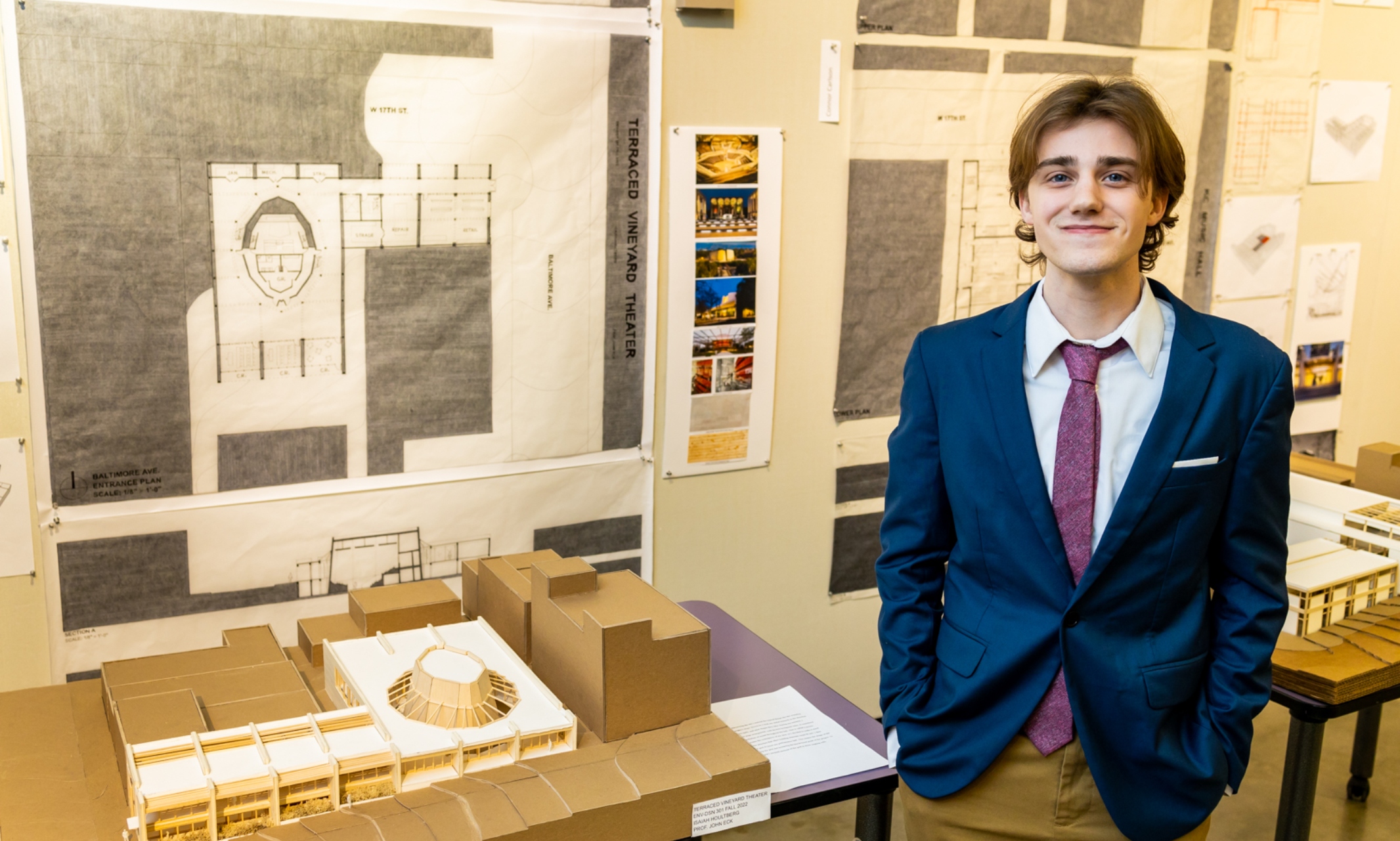
Helix Prize offers students challenges, opportunity
Roos don't just dream, they do. Our students turn ideas into action every day. Get to know our people, and you'll know what UMKC is all about.
Isaiah HoultbergAnticipated graduation: 2023Academic Program: Architectural StudiesHometown: Salina, Kansas
Isaiah Houltberg is this year’s winner of the annual UMKC Architecture and Urban Planning and Design Helix Prize competition and scholarship grant.
Every fall, Helix Architecture + Design sponsors the Helix Prize, a competition and scholarship for UMKC second-year Architectural Studies students. Professor John Eck teaches the studio, and faculty and members of the architectural professional community judge the competition. This year’s competition was to create a design for the “Kansas City Experience Music Project,” a concept based on a similar project in Seattle.
Houltberg has been interested in architecture as a child and had the unique opportunity to take architecture and drafting in high school that inspired him to pursue the field in college and as a career.
Houltberg and John Eck, practicing architect and associate teachng professor
Why did you choose UMKC?
I chose UMKC for its urban setting and its architecture program. UMKC has a sister program with Kansas State University. We did our first two years at UMKC and 3 years at KSU.
What are the challenges of the program?
Architecture is a very demanding program. On top of regular project deadlines and assignments, I commit many out of school hours to work. I will often spend all day in the studio and come in on the weekends. A higher-level understanding of design is also a challenge, whether that is coming up with three different design ideas in studio or creating a case study of a building. But at the end of the day, I enjoy it and it’s worth it.
What are the benefits of the program?
It's a very unique five-year fast track program, which is nationally recognized as one of the best. Plus, the added benefit of doing the first two years at UMKC is its urban setting.
How has your college program inspired you?
Seeing how much hard work it takes to be successful has really encouraged me to keep pushing through no matter how stressful it can get.
Since entering college, what have you learned about yourself?
Personally, I have used my experience so far to refine some of my learning strategies. I have been able to figure out where I excel and lack in when it comes to how I learn.
Are you a first-generation college student?
I am a second-generation college student. Seeing my extended family take their education in directions that they genuinely love and enjoy encouraged me to pursue an education.
Who do you admire most at UMKC?
I admire my architecture professors for their professionalism and the unique knowledge and views they bring to every lesson. Also, I admire my classmates’ creativity and talent and their perseverance to stay in such a challenging program.
What other extracurricular activities are you involved in at UMKC?
I am the head lifeguard at the Swinney Center.
What do you hope to take from your experiences at UMKC into your professional career?
Personally, I want to take the views and experience from the professors who work in an urban setting. I think this helps further my understanding of architecture and satisfy myself as a designer and architect.
Jan 24, 2023

U.S. News ranks online master’s program nation’s 11th best
The online master’s program in nursing at the University of Missouri-Kansas City has been ranked among the nation’s best for military veterans by U.S. News & World Report.
The rankings released today placed the program offered by the UMKC School of Nursing and Health Studies at No. 11 in the nation.
“Veterans and active-duty service members gain the most from distance education that is affordable, accessible and reputable,” the organization stated. “The 2023 Best Online Programs for Veterans rankings measure these factors in consideration of financial benefits available specifically to people with military experience.”
The full list of U.S. News rankings is available at www.usnews.com/online.
“We are extremely proud that our programs have once again been recognized for educating top quality nurse practitioners and nurse educators. Only an exceptional faculty and strong community support can make that happen year after year,” said Joy Roberts, interim dean of the school. “The ranking for veterans demonstrates our commitment to serving those who have served all of us.”
The program’s overall ranking was unchanged from last year, remaining in the nation’s Top 50 programs at 46th in the U.S. – the 11th consecutive year the program has been ranked among the nation’s Top 50. The nursing category included 203 different schools.
To qualify, programs must have “performed well enough on a multitude of factors – including program reputation, faculty credentials, retention rates and graduate debt loads – to earn a qualifying Best Online Programs ranking.”
The UMKC School of Nursing and Health Studies is a pioneer in distance-learning programs, offering online advanced degree programs since 2002. The programs offer busy professionals a high-quality but convenient way to further their careers and meet the needs of an evolving health care system.
Online students are expected to participate in online discussions as if they are present in the classroom. Technology offers two-way communication in real time via multiple modes. Students also experience on-site learning through summer institutes where they are required to attend clinical training or dissertation work sessions, and deliver presentations to classmates and faculty.
UMKC offers a variety of online graduate nursing tracks, including Master of Science in Nursing (MSN) and other options:
Adult-Gerontology Primary Care Nurse Practitioner (AGNP)
Family Nurse Practitioner (FNP)
Neonatal Nurse Practitioner (NNP)
Nurse Educator (NE)
Pediatric Nurse Practitioner (PNP) Primary Care and Acute-Care (AC PNP)
Psychiatric Mental Health Nurse Practitioner (PMHNP)
Women’s Health Nurse Practitioner (WHNP)
Ph.D.
Doctor of Nursing Practice (DNP)
Jan 23, 2023
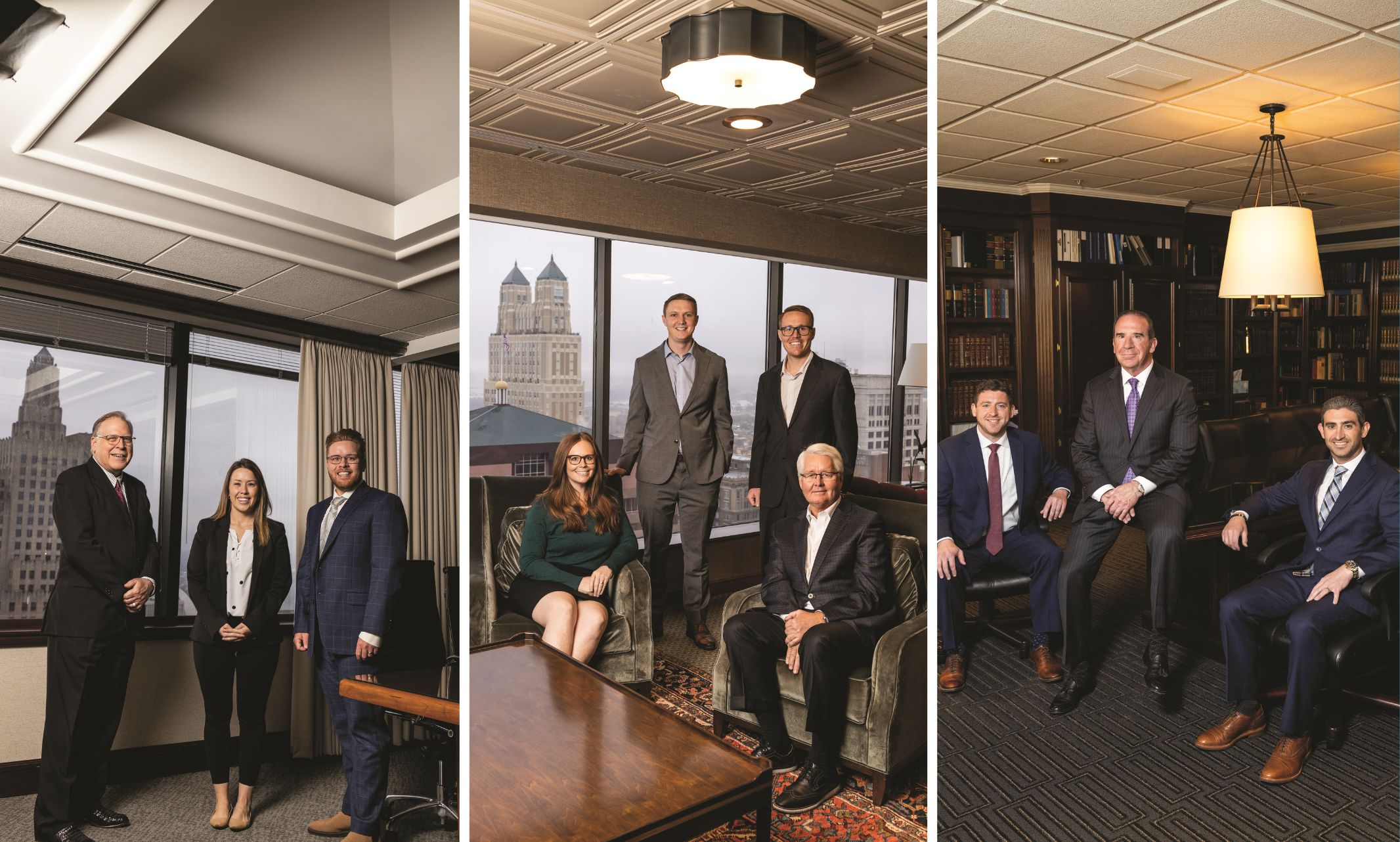
Families graduate from the Trial Advocacy Program and make their careers right here in Kansas City
Kansas City is known as the City of Fountains, as a soccer city and, of course, for its barbecue. But to many UMKC School of Law alumni, it is also known for being a great place to practice law.
The Trial Advocacy Program is elite, evidenced by competitive mock trial and moot court teams, and many alumni credit the city and the people for its success. We talked to three legacy families about what makes the Trial Advocacy Program so successful and why they’ve made law school at UMKC a family tradition.
Dollar Family
For the Dollar family, practicing law is a family affair. Tim (J.D. ’84) is a founding partner at Dollar, Burns, Becker and Hershewe. His son Joshua is currently in his third year of law school at UMKC. Two of his children, Lauren (J.D. ’17) and Jordan (J.D. ’19), have joined the practice within the last few years. The firm also boasts UMKC alumni in founding partner Tim Becker (J.D. ’91), whose son Josh Becker (J.D. ’15) is also a partner in the firm.
The Dollar family’s start with the legal profession began when Tim was a child and spent several summers in the office of his father’s attorney, Max Foust (J.D. ’54). Little did he know at the time, his journey through law school would open the same opportunity to many students down the road.
At the time Tim attended UMKC, the Trial Advocacy Program was limited to 12 students. He felt strongly that the program should be expanded to accommodate more students. After graduation, he and several classmates took action.
“We designed an expanded Trial Advocacy Program that would involve members of the legal community serving as adjunct professors — free of charge — to make the program available to any student who wanted to experience Trial Advocacy,” said Tim. “To our shock, the faculty adopted that program. That was the first time the Trial Advocacy Program expanded, and now it’s really made its mark nationally with all the work that’s been done since then.”
Lauren, Jordan and Joshua are three such benefactors of the expanded program. Lauren participated in the 1L Mock Trial Competition, Mock Trial team, and took moot court and trial advocacy classes. Jordan also took part in the 1L Mock Trial Competition, continuing with the team through his 2L and 3L years. Joshua took first place at that same 1L competition in 2021. They credit these experiences with preparing them for practice.
“You may get a great education somewhere, but you have to marry it with practical experience. Everything from trial skills, to moot court to negotiation — I think UMKC has set themselves apart in their focus on practical experience.” - Tim Dollar
“I felt like the competitions, both the oral arguments for moot court and the mock trial competitions, really helped develop my skills in trial advocacy,” said Lauren. “They were able to teach me more than I could learn in just a class. I’m very thankful for both the classes and the competitive side that gave you even more experience.”
Jordan added, “I feel like the competitions especially provide an opportunity to develop and hone your skills in ways that I don’t think are available in a classroom setting. Dealing with a case over a semester provides experiences that translate directly to practice more than any class I took.”
“You may get a great education somewhere, but you have to marry it with practical experience,” said Tim. “Everything from trial skills, to moot court to negotiation — I think UMKC has set themselves apart in their focus on practical experience.”
In addition to practical skills, the ability to build lasting relationships in the community is what drew the Dollars to UMKC.
“The alumni of the Trial Advocacy Program are invested in preparing the next generation for the practical world,” said Lauren. “They give back in teaching and educating our students. So not only do you get to network with these great attorneys and judges, but they’re the ones teaching you and making sure you’re prepared.”
“My advice to anyone, as it was to my kids, is if you want to practice in the KC area, then UMKC is the place to be,” said Tim. “In addition to academics and practical experience, you are encouraged to plug in with the legal community. You can start to develop those relationships while in law school, and I think you’re miles ahead of someone who might go to an Ivy League school and then drop into Kansas City without having that network.”
Accurso/Dickinson Family
Lou Accurso (J.D. ’81), founding partner of The Accurso Law Firm, knew in high school that he would become an attorney.
“I was influenced heavily by the Watergate hearings,” said Lou. “Those were broadcast my senior year, and I remember seeing these amazing senators and committee members who were all lawyers. It was captivating the way they could ask questions and follow up on investigations.”
Lou may have been the first of the Accurso family to attend UMKC School of Law, but he certainly wasn’t the last. His sister, Tammy Dickinson (J.D. ’98), nephew Michael Accurso (J.D. ’96) and sons Christopher (J.D. ’14) and Patrick (J.D. ’18) are all alumni.
The school’s numerous opportunities to get practical experience is part of what drew them all to UMKC.
In Christopher’s case, it changed his plans entirely.
“When I went to law school, I wanted to get my law degree and be some sort of sports agent,” he said. “Then a good friend, unbeknownst to me, signed me up to be his partner for the first ever 1L Mock Trial Competition. We had a blast, and that was the end of my Jerry McGuire moment.”
Lou, Tammy and Christopher all worked in the Jackson County Prosecutor's Office immediately after graduating law school. Tammy and Christopher credit the Trial Advocacy Program for preparing them for the courtroom.
“For me, the biggest tool UMKC offered was the prosecutor’s clinic (now called field placement),” said Christopher, who now works at The Accurso Law Firm. “I got my Rule 13 certification and spent a year and a half interning at the prosecutor’s office. I was trying bench trials and handling dockets and really using those tools I learned in mock trial in the real world. I had a lot of facetime with judges and attorneys, so by the time I graduated and got hired on, I was able to step right in.”
"....a good friend, unbeknownst to me, signed me up to be his partner for the first ever 1L Mock Trial Competition. We had a blast, and that was the end of my Jerry McGuire moment.” - Christopher Accurso
Tammy, former U.S. Attorney for the Western District of Missouri, added, “It’s almost like you have a head start on everybody who didn’t do that — especially if you want to be a trial attorney. I started interning under Rule 13 as soon as I could.”
For Lou, that real-world experience came in the form of trial practice, a course started by then-Dean Patrick Kelly that gave students the opportunity to prepare and conduct jury trials in insurance cases leading to binding verdicts.
“It was irreplaceable,” said Lou. “As a matter of fact, it even helped me on the bar exam. One of the questions they asked was to draft a lawsuit and include all the claims and parties. If I hadn’t practiced it, I don’t think I would have known what to do.”
Practical experiences, both in and out of the classroom, help form relationships that last through a career.
“My dad always told me that it's best to go to law school where you want to practice,” said Christopher. “I knew UMKC would give me plenty of opportunities to work with actual practicing attorneys. That’s one aspect of UMKC I really like; you have practicing attorneys giving you real world advice and experience while teaching you in your classes.”
Hobbs Family
The Hobbs family’s law school legacy begins with J.R. Hobbs (J.D. ’81), founding partner of Wyrsch Hobbs & Mirakian, P.C. and an adjunct professor. J.R.’s son and daughter-in-law Jackson Hobbs (J.D. ’18) and Sarah (Kanoy) Hobbs (J.D. ’18) followed. J.R. credits the environment at UMKC for fostering meaningful relationships that translate into effective networks in the legal community.
“I think there’s a collegial atmosphere that permeates the school,” said J.R. “People want to do well, but they want to do it parallel to each other and not stumble over each other. In the end, it’s about relationships.”
The Hobbs family is unanimously of the opinion that’s what sets UMKC School of Law apart: the relationships you build while in school.
“Those relationships you’re building in law school are the same relationships you’ll build on in practice. It is immeasurably beneficial.”
- Sarah (Kanoy) Hobbs
Those relationships are of particular benefit to students in the Trial Advocacy Program due to the geographic location of the school.
“We straddle two different districts in federal court that also happen to be in different federal circuits,” said Jackson. “If you want to practice here, there’s no better place to go to law school and get real-world experience. The proximity to a city like Kansas City just can’t be found anywhere else.”
As a legacy student, UMKC School of Law had always been on Jackson’s radar. But he said there were two primary reasons he was drawn to UMKC: the networking possibilities to start a career in Kansas City and the opportunities to participate in various mock trial and moot court activities. In his first year, he participated in the Last Team Standing Trial Advocacy Competition. Following that experience, he joined the trial team in his second and third years for competitions across the country, including the National Trial Competition and Tournament of Champions. Jackson also competed in the school’s Ellison Competition and on the national moot court team.
J.R.’s sons Jackson and Eric both married UMKC Law graduates: Eric met his wife Molly (Callender) Hobbs (LL.M. ’14) when they were attending law school at the University of Denver. Jackson (J.D. ’18) and his now wife Sarah (Kanoy) Hobbs (J.D. ’18) met at UMKC School of Law. Like Jackson, Sarah participated in the trial team. As the first in her family to go to law school, she didn’t have the background to understand how beneficial UMKC’s competitive teams could be for her as she looked at different law schools. The relationships among alumni are what drew Sarah to UMKC.
“That was one thing that struck home with me — the people that you’re going to be practicing with when you leave law school — there’s a good chance that they went to UMKC,” Sarah said. “Those relationships you’re building in law school are the same relationships you’ll build on in practice. It is immeasurably beneficial.”
Jan 20, 2023

The state-of-the-art facility will position the district as a premier academic medical district and help propel health-care equity in the region
The University of Missouri-Kansas City announced a $15 million gift from the Hall Family Foundation, which will help fund an innovative new medical and dentistry building in the UMKC Health Sciences District.
The university has secured $95 million toward the $120 million cost of a new Healthcare Delivery and Innovation Building on the corner of 25th and Charlotte.
The new building will enable UMKC to provide leading-edge health-care education, attract top students and researchers and advance care for disinvested populations. In addition, the project will serve as a catalyst for developing the UMKC Health Sciences District into a major regional academic medical center that can generate billions of dollars in jobs and economic impact for the Kansas City region.
The new multi-story building will house dental teaching clinics and expanded medical school teaching facilities. In addition, it will provide space for the UMKC Health Equity Institute, the university’s Data Science and Analytics Innovation Center and its new Biomedical Engineering program.
"We are grateful to the Hall Family Foundation for its investment in our students and the Kansas City community,” said UMKC Chancellor Mauli Agrawal, Ph.D. “The Healthcare Delivery and Innovation Building will further solidify the UMKC Health Sciences District as a national leader in medical education and health care as well as support our mission of increasing health equity in the Kansas City region and beyond.”
U.S. News and World Report listed the UMKC School of Medicine as one of the top medical schools in the nation for primary care and it was the highest-ranked in Missouri in 2023. Its graduates practice in 71 counties in the state and its students and faculty members provide thousands of hours of free health screenings and services each year. The new building will provide advanced technology to enhance physician training and provide more doctors to meet a critical need of providers in the region. It will also house the new biomedical engineering program, providing proximity with doctors and engineers to support the innovation of new medical technologies.
The UMKC School of Dentistry is the only public dental school in the state of Missouri and is a major low-cost provider of dental care in the region. UMKC dentistry students serve more than 13,500 community members each year and provided more than $630,000 annually in free dental care to community members at its clinics from 2016-2022. The new building will allow UMKC to see more patients and update the technology at the clinics to streamline care and create more efficient visits for patients and provide industry-leading education to students. In addition, the new space will increase ADA accessibility for patients with physical limitations.
Furthermore, the building will house major community outreach and research initiatives, such as the UMKC Health Equity Institute, designed to identify and address health disparities, and the Data Science and Analytics Innovation Center, which supports innovation in personalized health care.
“The Healthcare Delivery and Innovation Building will provide immeasurable benefit to the Kansas City community for generations to come, and we are proud to support it,” said Mayra Aguirre, president of the Hall Family Foundation. “Our Foundation’s mission is to support and fund projects that enhance the quality of human life for all Kansas Citians. This new building will enable UMKC to expand its important work in equitable and inclusive health-care delivery and we are inspired by the collaboration between UMKC, Children’s Mercy Hospital and University Health that improves the lives of people in our community.”
The latest gift to UMKC is not the first investment the Hall Family Foundation has made in the UMKC Health Sciences District. In 2018, the organization provided $75 million in funding for the Children’s Mercy Research Institute dedicated to pediatric medical research.
Gov. Mike Parson signed legislation in July from the state of Missouri that appropriated $40 million for the UMKC Healthcare Delivery and Innovation Building, contingent on a funding match. Since then, UMKC has received $30 million from the Sunderland Foundation, $15 million from the Hall Family Foundation, and $10 million in federal funding secured by Sen. Roy Blunt for a total of $95 million to date.
“UMKC is a leader in the Kansas City community and that is thanks, in large part, to the support of our partners. We are thankful they share in our vision of creating a cutting-edge health-care hub that will provide state-of-the-art care to everyone in our community,” said Amanda Davis, chief advancement officer and president of the UMKC Foundation.
Formed in 2017, the UMKC Health Sciences District is a partnership among UMKC and 12 neighboring health-care institutions. The district houses the UMKC schools of Dentistry, Medicine, Nursing and Health Studies and Pharmacy in a single, walkable campus, allowing for greater interprofessional training and research collaboration.
Learn more about the Healthcare Delivery and Innovation Building.
Jan 19, 2023
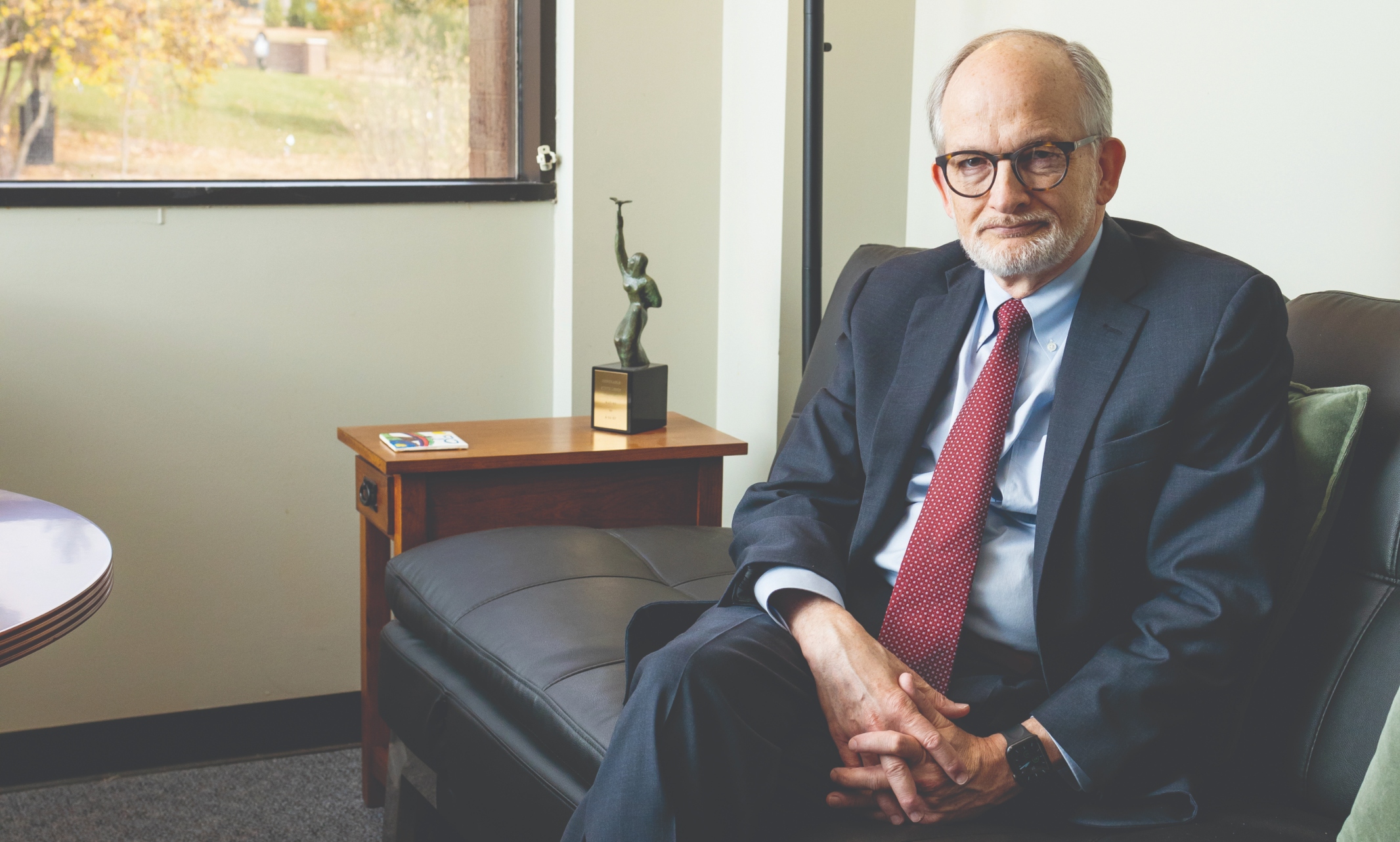
Leben is the fourth UMKC faculty member to earn the honor
The newest Douglas R. Stripp Missouri Distinguished Professor of Law Steve Leben brings a wealth of experience in the courtroom to the position.
Leben joined the UMKC School of Law faculty in 2020 as a visiting professor after 27 years as a Kansas judge – the past 13 as a member of the Kansas Court of Appeals – and 11 years of law practice in Kansas City.
“I’ve seen in the past two years the great training we give our students, and I’m glad to fully join UMKC’s well-recognized advocacy program,” Leben said.
Advocacy — essentially the art and science of persuasion — takes many forms. UMKC School of Law has long had a strong reputation in both trial and appellate advocacy education. The school’s advocacy program is A-rated by National Jurist magazine, and the school is ranked 31st in the country for advocacy by U.S. News and World Report. Professor Leben's leadership is already evident. Just this month, UMKC Law students competed in the national moot court regionals and both teams took away top honors and one team member was named Best Oral Advocate. As the undefeated winning team, UMKC Law will be heading to the national finals.
Leben brings both expertise and scholarship to elevate the advocacy program. He is a nationally recognized expert on procedural justice, and he has trained judges around the United States on how to improve perceptions of fairness in court proceedings. In 2014, the National Center for State Courts gave him its highest award for a judge, the Rehnquist Award for Judicial Excellence, in recognition of his work on procedural-justice issues. Leben is an elected member of the prestigious American Law Institute, an officer of the American Bar Association Judicial Division’s Appellate Judges Conference and past president of the American Judges Association.
He becomes the fourth faculty member to serve as the Stripp Professor of Law, following S. Rafe Foreman (2011-2019), Robert Klonoff (2003-2007) and Andre Moenssens (1996-2002).
In his role as the Douglas Stripp Professor, Leben said he would focus primarily on enhancing the school’s appellate advocacy program.
“I want to bring more appellate judges in from around the country to participate in our competitions and speak to our students,” he said. In addition to appellate advocacy, Leben teaches another important form of advocacy in his legislation course, in which students learn about public policy advocacy and the legislative process.
The Douglas Stripp Professorship was created and funded by Bebe and R. Crosby Kemper through the R. Crosby Kemper Charitable Trust and Foundation. It is named for Bebe Kemper’s father, a lifelong Kansas City resident and internationally known trial lawyer, who practiced law in Kansas City for more than half a century until his death in 1983.
Stripp worked alongside Charles Evans Whittaker (J.D. 1924) in Kansas City before Whittaker was appointed to the U.S. Supreme Court. Stripp’s passion was mentoring young attorneys in the art of persuasion and advocacy. Professor Leben will carry on this legacy as the Stripp Professor.
Jan 17, 2023
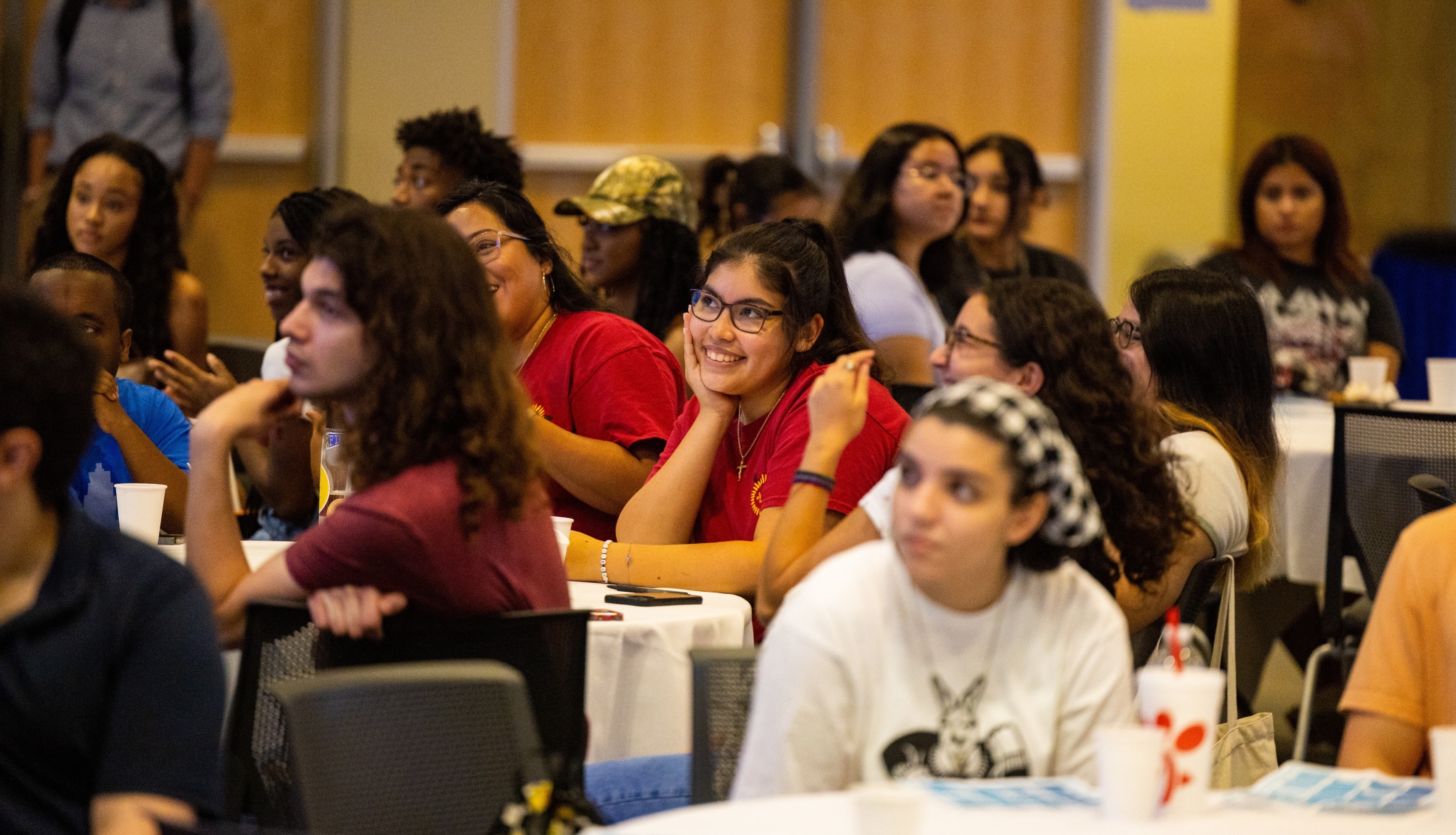
Consistent and significant funding enhances student success, degree completion. Photo by Brandon Parigo | UMKC
For the past decade, the Patricia and John Morgan Academic Advancement Fund has supported UMKC programs that help students successfully navigate their college experience.
The fund’s most recent gift of $60,000 over two years supports students from the time they are introduced to UMKC through the transitions that follow – from acceptance to enrollment and beyond – with graduation as the goal.
Summer Bridge Scholars, an intensive eight-week program for incoming first-year students to help prepare them for college at UMKC, is one of the programs the Morgan Fund supports. In addition to their classes, students participate in programming on careers, culture, academic skill-building and community engagement.
“Funds from the Patricia and John Morgan Fund help our students become connected to the Kansas City community,” Megan Elsen, associate director of Academic Support and Mentoring, says. “We work in conjunction with our Multicultural Student Affairs office to develop programming that expose students to the city’s history and the different cultures that Kansas City offers, including tours showcasing the city’s varied food, music and art opportunities, to give them a taste of the community. Tuition, room and board and the extracurricular activities are possible because of the support from the Morgan Fund.”
Laura Casey, academic success coordinator for Summer Bridge Scholars, notes that the fund supports a broad range of students.
“A large majority of our students are first-generation and low-income,” she says. “We see lower (high school) GPAs and ACT scores, if students submit them, so they may need additional academic support, which we provide.”
Summer Bridge students may have more basic needs as well.
“We provide backpacks, school supplies, and put together welcome packages that include sheets, towels and a laundry basket, because a lot of students who live in the dorms don’t have what they need. Literally, we have students show up with just a duffel bag.”
In addition, new students are introduced to established UMKC programs within the Office of Multicultural Student Affairs including Avanzando, a support and resource program for Latinx students; African Americans Cultivating Excellence (AACE); and Emerging Research Scholars, which offers high-achieving, historically underrepresented students research projects in their field of study with faculty mentors.
These programs are based on the belief that connecting students to the UMKC community is essential to their success.
“It’s important to get students engaged early in their college experience, and the majority of the Morgan funding goes toward helping our scholars in the AACE and Avanzando Mentoring Programs get connected to the community as a whole,” Keichanda Dees-Burnett, assistant dean of students for student support and director of Multicultural Student Affairs, says. “We want them to be knowledgeable about the resources available to them and have a good start so that they can succeed.”
The AACE and Avanzando Programs are designed to increase persistence and graduation rates for first- and second-year students by providing individualized support to help not only support the cultural identity of scholars, but to also help them reach their academic and career goals.
Roland Hemmings, Jr., assistant director of Multicultural Student Affairs, knows that students who don’t become connected early may wait too long to ask for help – if they ask at all. His approach to student support is not a set formula.
“Every year the needs of students change, so there isn’t a cookie cutter approach,” Hemmings says. “We have general programming that addresses common barriers to student success, but we take the time to talk with students individually about what help they need and help them find the right direction,” Hemming says.
Dees-Burnett notes that staff spend a great deal of time with students reinforcing that there are people and resources at UMKC who are eager to help them.
“They may be intimidated, but we tell them, ‘Everybody here is working for your success.’ We encourage them to ask questions so they don’t find out they are making a mistake that could have been avoided.”
Hemmings agrees.
“We are reinforcing that it is better to ask questions early, so we create a safe space where they understand that everyone is here to help and support them .”
The support of the Patricia and John Morgan Advancement Fund has been critical to student success.
“Significant and consistent support from the Morgan Fund is providing life-changing opportunity for UMKC students,” Jennifer Lundgren, Ph.D., provost and executive vice chancellor, says. “The success of these students will impact their futures, their families and our community for generations.”
Jan 10, 2023
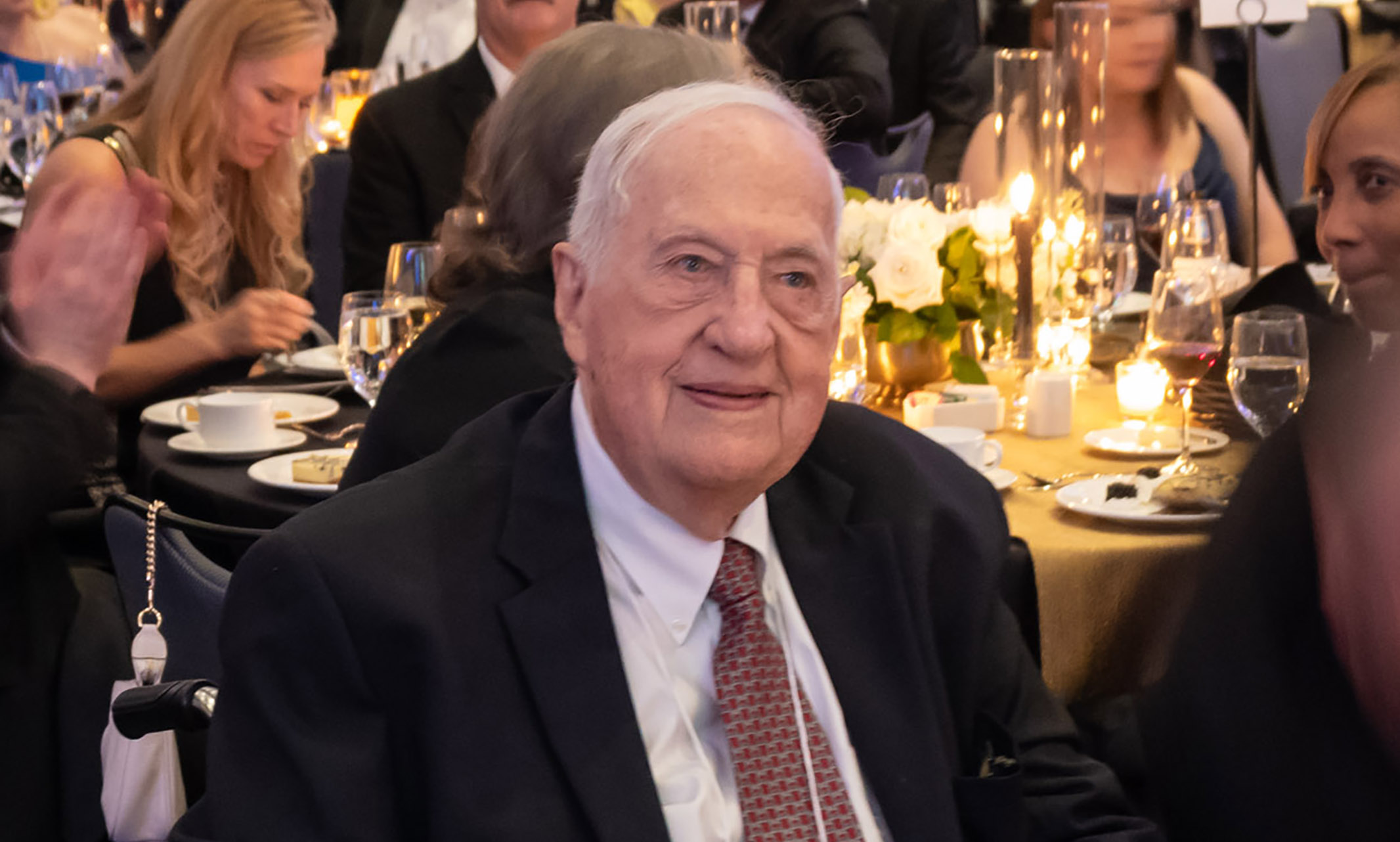
Harry S. Jonas served as second dean of the UMKC School of Medicine
Harry S. Jonas, M.D. (1926-2022), the second dean of the UMKC School of Medicine, helped establish the school’s unique six-year B.A./M.D. program and successfully defended the model against significant challenges.
As an administrator, Jonas effectively guided the fledgling medical school through serious early doubts from the Liaison Committee on Medical Education (LCME), the national accrediting organization for medical schools, which questioned the school’s unconventional six-year program that accepted medical students directly out of high school. Today, the model is generally accepted as a means to educate outstanding physicians.
Jonas was also known as a champion of those under his watch. Students and faculty who knew him well remember him as an extraordinary instructor and mentor who valued his students. In return they held him in equally high esteem.
Jonas, dean from 1978 to 1987, died just before Christmas.
Nearly 700 physicians earned their medical degrees from the school during his tenure as dean. One of them, Michele Kilo, M.D., ’84, remained in close contact with Jonas following his time at the medical school. Kilo said she and many of her fellow alumni shared similar experiences and fond memories of their former dean.
“Dr. Jonas’ impact on my life and my career and my years at the UMKC School of Medicine will always be remembered,” Kilo said. “His legacy of warmth, true caring and excellence in all endeavors will live on and never be forgotten.”
Mary Anne Jackson, M.D., ’78, current School of Medicine dean, met Jonas for the first time as a medical student in 1974. Jonas served as chair of the Department of Obstetrics and Gynecology at Truman Medical Center, now University Health, at the time.
“His passion for teaching students and residents was exceptional, and I knew with him at the helm we were learning the state-of-the art practices in all aspects of women’s health,” Jackson said.
Jonas served two years in the Navy during World War II before returning home to complete his undergraduate and medical degrees at Washington University in St. Louis. He moved to Independence, Missouri, in 1956 to become a private-practice physician and found himself drawn to academia.
His work in academic medicine started as a volunteer instructor in the residency program at Kansas City’s General Hospitals 1 and 2. He was recruited to serve as the hospitals’ first chairman of the Department of Obstetrics and Gynecology, a role he continued to serve when Truman Medical Center replaced the old General Hospital.
He took on a new role in 1978 when he was chosen to become the second dean of the UMKC School of Medicine, where he had also served as both an assistant dean and chairman of the Council on Evaluation.
“Different deans do different things,” Jonas said in a publication celebrating the school’s 25th anniversary. “Some are researchers, some are planners that go inside their office and close the door and plan for the future and then there are others who are very externally oriented. I was probably in that category.”
Kilo said, “He was approachable to School of Medicine students in ways that are remarkable and not typical of most deans, including greeting us by name, holding wonderful dinners at his home that always included medical students in a warm and inviting environment, and showing his interest in each of us personally, not just our grades or our career goals, but how we were doing as human beings and whether we were thriving socially.”
Following his tenure as dean, Jonas spent more than a decade with the American Medical Association in Chicago where he served as assistant vice president, and as secretary of the LCME, the body that once questioned the UMKC model.
He returned to Kansas City in 2000 to play another key role in the development of the School of Medicine’s curriculum. As a special consultant to the dean, Jonas was instrumental in creating a new geriatrics curriculum for first-year medical students. That program continues today, pairing students in a year-long mentoring experience with residents of John Knox Village, a Kansas City-area retirement community.
Kilo said Jonas served as her mentor, listening and providing guidance recently as she was in the midst of making a major career change. Likewise, when Jackson became interim dean of the medical school in 2018, Jonas made a point of connecting with her to share his experiences and wisdom for achieving success in her new role.
“He invited me to lunch to impart his knowledge and advice,” Jackson said. “He continued to come in person to important School of Medicine events and attended our 50th anniversary gala in June of 2022. All who knew Dr. Jonas could be confident that he was promoting our school locally, regionally and within national circles. He will be greatly missed.”
Jan 09, 2023
Grant provides support to continue and expand entrepreneurship programs on the UMKC campus and across the Kansas City region.
The University of Missouri-Kansas City has received a historic five-year, $12.97 million grant from the Ewing Marion Kauffman Foundation to build upon its national leadership in entrepreneurship programming and impact in the Kansas City region.
The grant funding will support a variety of efforts, including new and existing programs across campus. UMKC and the Kauffman Foundation have a shared mission of supporting diverse communities, and the grant will help each continue to reach underserved groups that may not traditionally have access to entrepreneurial resources.
“UMKC has a number of programs designed to help reduce barriers to entrepreneurship,” said Philip Gaskin, vice president of entrepreneurship at the Kauffman Foundation. “We believe that expanding and aligning these programs will drive interest and success in entrepreneurship and result in a diverse pool of new businesses in the region.”
The grant is a result of a partnership among nationally recognized programs at UMKC: UMKC Innovation Center, the Henry W. Bloch School of Management Regnier Institute for Entrepreneurship and Innovation and the UMKC School of Law.
“This grant from the Ewing Marion Kauffman Foundation is a clear endorsement of the work we’re doing across the university and in our surrounding communities to support entrepreneurship,” said UMKC Chancellor Mauli Agrawal.
The initiative will accomplish a variety of goals. It will build on and expand the university’s existing commitment to interdisciplinary collaborations, allowing increasing numbers of undergraduate and graduate students to explore entrepreneurship across campus. Additionally, it will increase community connections, expand the availability of impactful educational resources for diverse entrepreneurs, implement a stronger technology commercialization system to move UMKC research innovations to market and provide more avenues for all areas of campus to participate in entrepreneurial activities.
“This grant allows UMKC to grow our programs and invest even more in both cross-campus and community entrepreneurial initiatives,” Agrawal said. “We are thrilled to work with the Kauffman Foundation and current and future partners to build upon our strong foundation and create more opportunities for the region’s innovators and entrepreneurs.”
Jan 05, 2023
